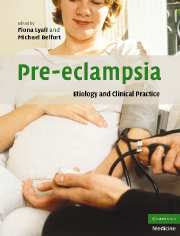Preeclampsia and gestational hypertension are two disorders taken very seriously during pregnancy. Both disorders can lead to and might even cause the death of the unborn fetus. Many women who suffer from these maladies blame themselves and their stress levels; they think that if they just weren’t as stressed-out during their pregnancies, they could have probably prevented the disorders and the subsequent deaths. A recent study, however, shows otherwise.
Dutch researchers have found that a woman’s stress levels during pregnancy do not increase the chance of developing either of the hypertensive disorders of pregnancy. Although increased psychological stress is not great during pregnancy–it can wear a woman down and lead to postpartum depression–expecting mothers should not fear getting preeclampsia or gestational hypertension.
 Preeclampsia is a hypertensive condition with significant protein concentrations found in the urine (proteinuria). Gestational hypertension is preeclampsia without proteinuria. Hypertension is high blood pressure (HBP), and elevated blood pressure can force substances, like protein, through the kidneys and into the urine–not a good situation. Obviously, HBP can be dangerous for a developing fetus. Both hypertensive disorders are asymptomatic–that is, they have no outstanding symptoms leading to their discovery. Therefore, blood pressure must be checked regularly during pregnancy. Both hypertensive disorders can develop after 20 weeks of pregnancy, but preeclampsia is often seen after week 32. The only solution to this dangerous situation is emergency cesarean section, induced labor, or abortion. Because of the high risk to mother and fetus, one of the above options must be exercised.
Preeclampsia is a hypertensive condition with significant protein concentrations found in the urine (proteinuria). Gestational hypertension is preeclampsia without proteinuria. Hypertension is high blood pressure (HBP), and elevated blood pressure can force substances, like protein, through the kidneys and into the urine–not a good situation. Obviously, HBP can be dangerous for a developing fetus. Both hypertensive disorders are asymptomatic–that is, they have no outstanding symptoms leading to their discovery. Therefore, blood pressure must be checked regularly during pregnancy. Both hypertensive disorders can develop after 20 weeks of pregnancy, but preeclampsia is often seen after week 32. The only solution to this dangerous situation is emergency cesarean section, induced labor, or abortion. Because of the high risk to mother and fetus, one of the above options must be exercised.I found this an important piece to do since so many pregnant women in America seem to be stressed out. According to another recent study, 20% of all new mothers in the U.S. suffer from postpartum depression. Postpartum depression is linked to many risk factors including tobacco use late in pregnancy, physical abuse before or during pregnancy, partner-related stress during pregnancy, trauma during pregnancy, and financial stress.
Hey, life can be tough. And it’s hell of a lot harder to deal with when feeling big, bloated, uncomfortable, hormonal and unable to find a comfortable position to sleep in. I get it. I see my wife dealing with it now during our second pregnancy. It ain’t all fun and games. But at least when times get real tough, and the stress seems to know no bounds, please rest assured that you can “feel crazy” and not worry that you’re damaging your baby–at least not as far as it’s blood supply is concerned. Any other hypothesis regarding Mama’s stress stressing baby out is still up for analysis. But for preeclampsia–not a chance.












